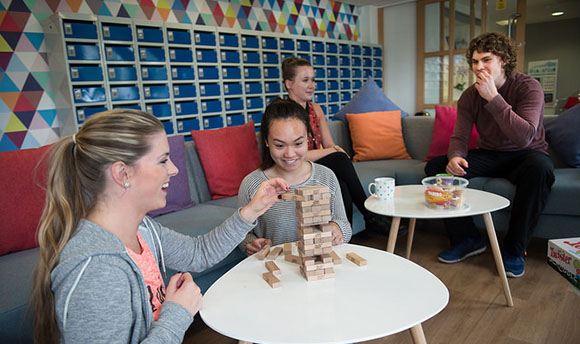In response to the obvious impact that studying acting during lockdown had on our Acting & Performance students both in terms of their capacity to be playful and on their physical bodies we (Marion Scott - voice lecturer and Stephanie Arsoska - movement lecturer) devised a series of daily limber sessions as part of our training structure. It had become clear that after several months of students having to act in their bedrooms via their laptop screens that they had lost contact with much of their body and how to relate appropriately to a studio rehearsal space as well as the obvious impact on areas such as overall fitness and physical alignment. The daily warm-up sessions started as a way of tackling this issue in a very tangible manner, and after a year of this work we found that not only did these sessions serve as a way to develop the discipline of a personal daily practice in our students, but that they began to provide a space for so much more.
In 2017, I (Stephanie) wrote about the ways in which my ensemble practice had created a community of students who shared a practice, in other words the community had emerged from the training. Throughout the year of daily warm-ups, it became clear that this could work the other way around: creating community could also become the landscape in which a training could emerge.
The Acting & Performance degree, now in its third year, has always aimed for a holistic approach to its actor training. The staff team work closely with one another to integrate the four strands of the course - acting for stage, acting for screen, voice, and movement - so that students can embody the principles of each in comprehensive manner. This approach differs from many other acting degrees where the curriculum is maintained in separated strands with little opportunity for students to understand how each practice supports the other. In addition to this, our level of pastoral care is very high, and we take great pride in the level of support we offer students both within the rehearsal room and beyond.
The Daily Limber started off as the development of practice but became a space where connections between students and staff could be made. A combination of traditional movement and voice based work and daily walks (complete with our own drama dog, belonging to a member of staff) created a regular space for checking-in and connection. This was a shared time without an agenda, where we could walk and talk, notice which students might need support, build bonds within the group and create a culture of support and care. In turn this has enabled the building of bonds beyond campus as students regularly meet the same people on their travels, for example the students look forward to seeing a local elderly man who always says hello while he is out walking his dog, Jasper. The walks connect the actors and staff to one and other as well as to the broader local community in which the university sits.
This community of care has been further developed through our regular tutorials, shared lunches, research trips and opportunities for external project participation such as the 24-Hour Film Festival. Each student keeps a journal as part of their practice, developing their critical reflection skills. Recorded podcasts between students allows them to build upon these reflections in more detail. In third and fourth year students have opportunities to create personal research projects on their practice and to share the results with each other and they will often facilitate each other in workshops and warm-up sessions.
Over time this emerging community of care has become the grounds in which the training can take place. The Daily Limber still serves as a place for professional personal practice but it has also provided a clear framework for the ethic of the actor training we offer at QMU. Arguably it is this framework that has allowed us to sustain a 100% attendance rate for the last five months, something that is unusual in higher education, particularly post-covid. One way to describe this work is to say that we are working with an ensemble ethic that centres “care taking” care for the students welfare, care for the shared and individual creative practice; and most of all care for the connections we have with each other, the community and the work that we do.







